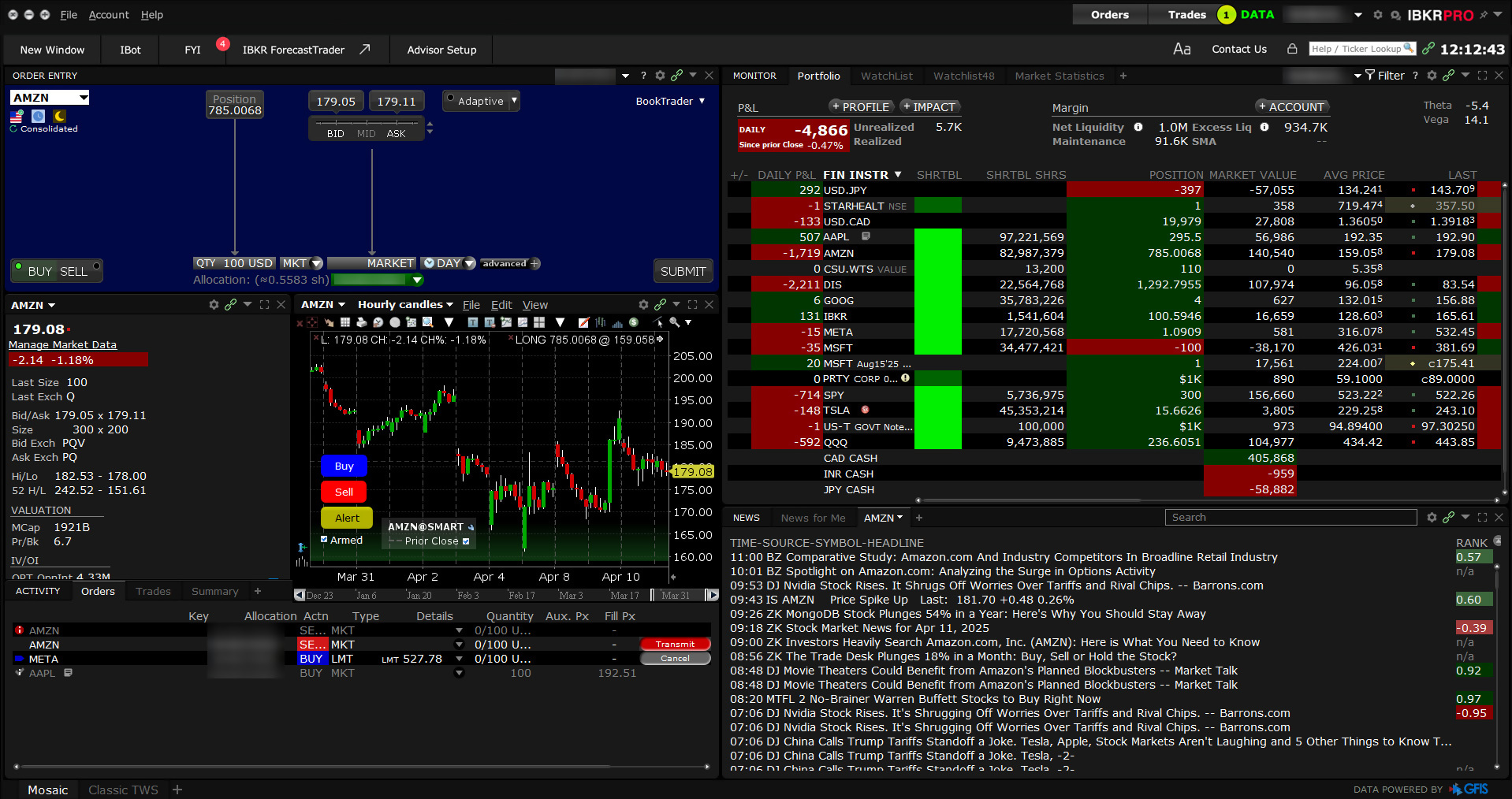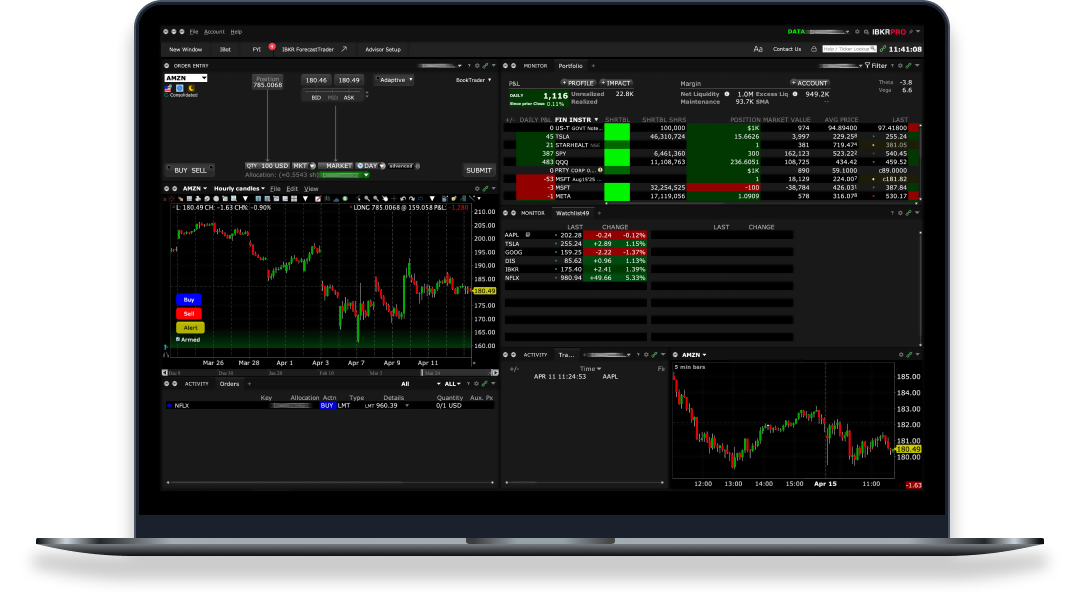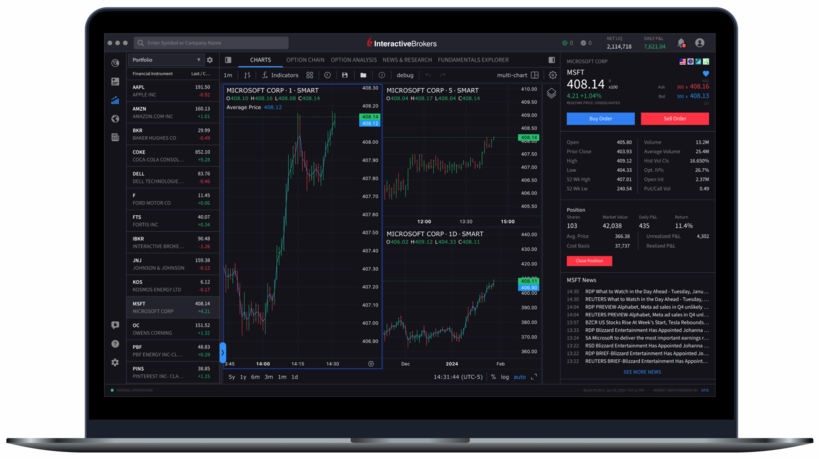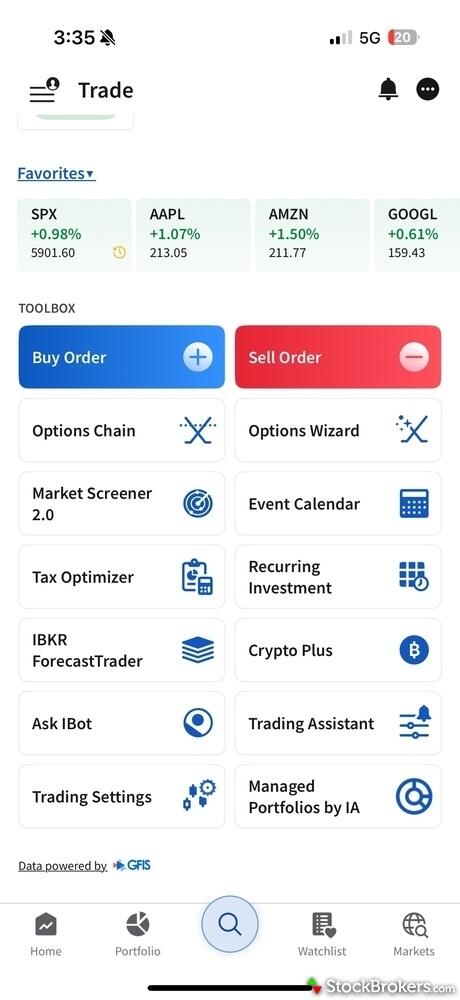I switched to TWS when my TD Ameritrade margin bill got stupid expensive. TWS margin rates are around 6% versus the 12-13% ripoff everyone else charges. If you use any meaningful leverage, the math is fucking simple.
The first few months were brutal. TWS makes other platforms look like toys designed for children. This is what actual traders use when they need international markets and don't mind an interface that assumes you know what you're doing.

TWS is a real trading platform, not a mobile app with pretty buttons. Unlike other brokers that treat you like an idiot, TWS assumes you understand basic trading concepts. Google them yourself if you don't know what margin is.
The platform has way too many order types - you'll use maybe 10 of them. But the ones you do need (bracket orders, algos) actually work, unlike the half-broken versions on other platforms.
When markets get crazy, TWS keeps working. Other platforms crash or slow down when you need them most. TWS stayed up during the March 2020 meltdown while TD Ameritrade was shitting the bed.
TWS gives you two interface options, both confusing at first:
Classic TWS is fast but dangerous. Click the bid or ask and your order goes out immediately. No confirmations, no safety nets. Great for day trading, terrifying for everyone else. I somehow managed to buy way more Apple than I wanted my first week. Still not sure how I screwed that up.
Mosaic is supposedly user-friendly, which is like saying a race car is user-friendly compared to a fighter jet. You can arrange windows and link them by color. I use Mosaic because I'm not day trading and prefer not to accidentally buy random amounts of stock.

Now here's where TWS actually dominates - international markets. Want to buy Honda directly on the Tokyo exchange at 3 AM EST? TWS can do that. Need European stocks during their market hours? Works fine. Most U.S. brokers give you access to maybe a dozen international markets. TWS gives you 150+ markets across 33 countries.
My buddy trades from Bangkok and can access U.S. markets during his daytime while Americans are sleeping. Try doing that with Schwab - good fucking luck.
The multi-currency thing actually works well - TWS handles currency conversions automatically. No calling customer service or opening separate accounts for different currencies. It just works, unlike most other parts of the platform.
The Real Costs (Here's the Math)
Everyone talks about "commission-free" trading, but that's bullshit when you're paying 12%+ on margin. TWS has two pricing options:
IBKR Lite - No commissions but they sell your order flow like everyone else. Margin rates around 7%. Still way better than most brokers.
IBKR Pro - Small commissions but better execution quality. Margin rates around 6%. This is where you save real money if you use leverage.
I pay maybe $50/month in commissions but my margin bill went from around $400 to $120. No-brainer.
When TWS Will Destroy You
Don't use TWS if you just want to buy index funds monthly. Don't use it if you need customer service to hold your hand. Don't use it if you've never traded anything more complex than Robinhood.
The learning curve is brutal. You will lose money while figuring out how not to accidentally place orders in the wrong account or wrong currency. Customer service assumes you understand trading basics. Don't call them asking what a stop loss is.
TWS makes sense for people who trade regularly, use margin, or need international access. If that's not you, Schwab will be much easier and won't make you want to smash your computer.
Look, TWS is powerful as hell but you'll hate it for months while learning. Once you figure it out though, other platforms feel like they're designed for children. When I occasionally log into my old Schwab account, it feels like they're hiding information and treating me like an idiot.
TWS shows you everything - market data, risk metrics, order options - without the pretty interface polish. That's both good and bad, depending on what you actually need to get shit done.




